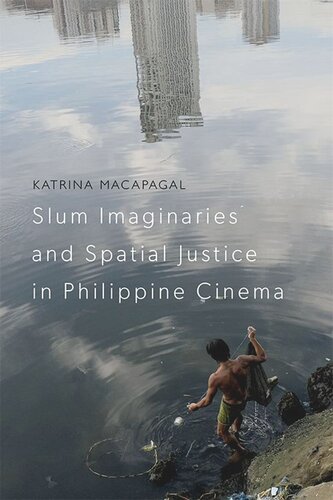

Most ebook files are in PDF format, so you can easily read them using various software such as Foxit Reader or directly on the Google Chrome browser.
Some ebook files are released by publishers in other formats such as .awz, .mobi, .epub, .fb2, etc. You may need to install specific software to read these formats on mobile/PC, such as Calibre.
Please read the tutorial at this link: https://ebookbell.com/faq
We offer FREE conversion to the popular formats you request; however, this may take some time. Therefore, right after payment, please email us, and we will try to provide the service as quickly as possible.
For some exceptional file formats or broken links (if any), please refrain from opening any disputes. Instead, email us first, and we will try to assist within a maximum of 6 hours.
EbookBell Team

4.7
26 reviewsOutlining the rise of Philippine slums alongside the historical development of Philippine urban cinema, Slum Imaginaries and Spatial Justice in Philippine Cinema makes a novel contribution to the cinema-city nexus through its interdisciplinary framework of film studies and human geography. It formulates the theory of the ‘slum chronotope’ as a theoretical tool to analyse narrative and genre formation in films that dialogue with Manila’s slum imaginaries, and makes the case for Philippine urban cinema – and Philippine urban history – as a significant vantage point from which to understand imaginaries of spatial justice.
With case studies that take off from The Blossoming of Maximo Oliveros (2005) to Respeto (2017), this book is a powerful contribution to transnational cinema studies."